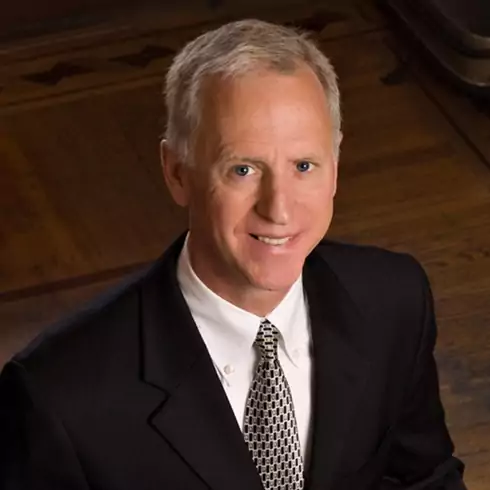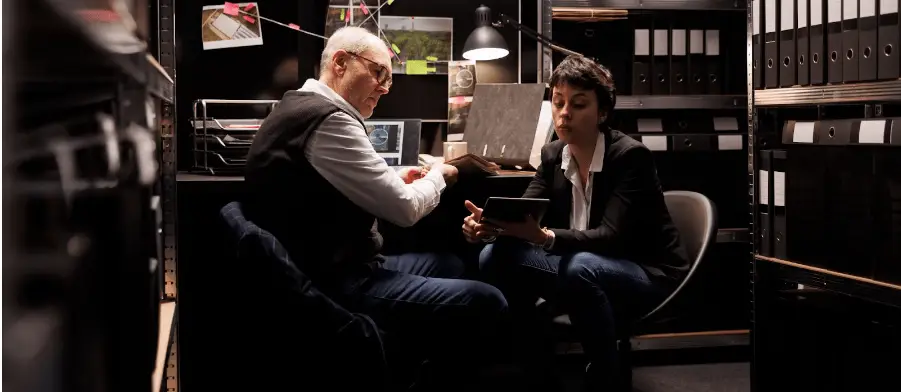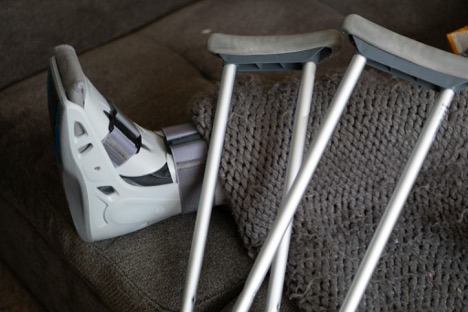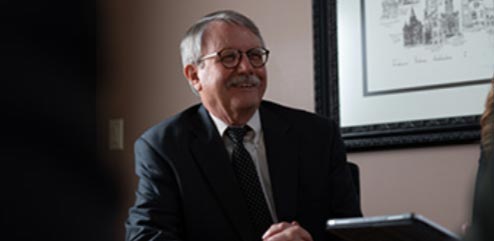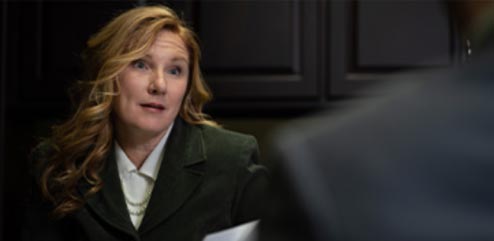Indianapolis RV Accident Lawyer
Helping people is our priority



Since 1993

Our RV accident lawyers at CFLB have spent decades dissecting the unique challenges of RV litigation: from untangling the web of rental agreements with hidden liability waivers to demonstrating how improper weight distribution caused a fifth-wheel to jackknife across three lanes of traffic.
Whether you’re facing a negligent rental company or battling an insurance carrier claiming your injuries existed before a crash, our Indianapolis attorneys are equipped with the technical knowledge to help you. We invite you to schedule a free initial consultation to discuss your case with an expert attorney.
How an Indianapolis RV Accident Lawyer Can Help You Secure Compensation
At Christie Farrell Lee & Bell, we’ve handled cases where the root cause was a brake system failure, uneven weight distribution in a rental RV, or a manufacturer’s defect that only surfaced after a serious crash. Our team begins every case by preserving key evidence from the RV itself—such as the black box data if available—and working with engineering experts to examine mechanical components and determine whether improper maintenance, design flaws, or overloaded cargo contributed to the collision.
Here’s how our RV accident attorneys help:
- Investigating RV-specific factors: We analyze whether driver inexperience, overloaded weight, mechanical failure, or road design contributed to the crash. In many of these cases, RVs are rented or driven by out-of-state tourists unfamiliar with Indiana traffic laws.
- Identifying all potentially liable parties: The driver may not be the only responsible party. Depending on the case, we evaluate whether a rental company failed to inspect or maintain the vehicle, if a manufacturer defect existed, or if a service company did substandard maintenance.
- Proving complex injury damages: Our attorneys work closely with medical providers and economic experts to calculate the full scope of losses—especially when long-term care, surgeries, or future wage loss are involved. We may also help recover compensation for lost wages and loss of earning potential.
- Handling insurance negotiations and preparing for trial: RV accident claims often involve large commercial insurance carriers or multiple policy layers. We don’t hesitate to take these cases to court when a fair settlement isn’t offered. We invite you to review our case results to see how we’ve secured six- and seven-figure outcomes for injured clients across Indiana.
- Protecting your rights from the start: We handle all communication with insurers so you don’t have to worry about accidentally hurting your case. If evidence like dashcam footage or rental records needs to be preserved quickly, we take immediate legal action.
Our attorneys thoroughly review rental contracts, inspection records, and any third-party service history to determine fault and build the strongest case for recovery.
Speak with a personal injury lawyer today. Call: 317-488-5500
What to Do After an RV Accident in Indianapolis
We’ve worked with clients who assumed the rental company would “take care of everything,” only to later find themselves blamed for mechanical failure or denied coverage by multiple insurers. That’s why your first steps after the crash must focus on preserving your ability to prove what happened.
We recommend you:
- Call 911 and ensure the crash is officially documented
- Seek emergency medical care even if symptoms seem delayed
- Photograph damage to all vehicles, debris, skid marks, and any injuries
- Get contact details for witnesses and all drivers involved
- Request insurance and license info from the RV driver and rental company
- Avoid recorded statements until you’ve spoken with a lawyer
Taking the right steps after a motor vehicle accident can make or break a liability claim. To see what details matter most, we invite you to review the accident claims process under Indiana law in a free initial consultation at CFLB. An expert Indianapolis RV accident lawyer can help you understand how to protect your rights.
Complete a Free Case Evaluation form now
Serious Injuries Linked to RV Collisions
The scale and weight of recreational vehicles often result in injuries that go far beyond what we typically see in standard car accidents. At Christie Farrell Lee & Bell, we’ve handled RV crash cases involving extensive spinal cord trauma, multiple surgeries, and even long-term paralysis, often requiring life care plans and testimony from medical economists. Because many RVs lack proper crash protection for passengers, especially in converted or rented models, even a moderate collision can lead to:
- Traumatic brain injuries (TBIs) from unsecured items striking occupants
- Spinal cord damage from rollovers or roof collapse
- Severe fractures and crush injuries from seatbelt failures or cabin collapse
- Burns or internal injuries caused by propane leaks or fires post-collision
- Post-traumatic stress disorder (PTSD) or chronic anxiety after high-impact crashes
These injuries often require months of treatment, adaptive equipment, and costly in-home care. If you’ve experienced psychological trauma or debilitating physical injuries, a personal injury claim may allow you to seek non-economic damages such as pain and suffering. In some cases, clients also qualify for compensation for lost wages if recovery time interferes with their ability to work.
Click to contact us today
Indiana RV Accident Laws That May Affect Your Claim
Several Indiana statutes are likely to come into play in RV accident litigation. One of the first steps we take at Christie Farrell Lee & Bell is determining whether the vehicle meets the legal definition of an RV under Indiana Code § 9-13-2-117.3, which impacts insurance coverage and vehicle classification.
Other important laws include:
- Indiana Code § 34-11-2-4: You generally have two years from the date of the crash to file a personal injury lawsuit.
- Indiana’s modified comparative fault rule: You can recover damages only if you were less than 51% at fault for the crash.
- Rental contract provisions: If the RV was rented, the agreement may affect liability or impose limits on insurance coverage. We’ve reviewed dozens of these contracts for clients and frequently identify language that helps protect their rights.
If you’re unsure how these laws apply to your situation, our team can help assess liability and advise you on how best to move forward with reporting car accidents and navigating accident claims in Indianapolis.
FAQs About RV Accident Claims in Indianapolis
Do RV drivers in Indianapolis need a special license?
In Indianapolis, most RV drivers don’t need a commercial driver’s license (CDL) unless the RV exceeds specific weight limits. However, we’ve seen cases where lack of experience behind the wheel contributed to serious crashes on local highways.
Who is liable in an Indianapolis RV accident—driver or rental company?
In many Indianapolis cases, the RV driver is liable, but we’ve handled claims where rental companies or maintenance providers were at fault due to mechanical defects or negligent upkeep. Determining liability requires a thorough investigation of contracts, inspection records, and damage reports.
Are RV accidents common on I-70 and I-465 in Indianapolis?
Yes. I-70 and I-465 are major RV corridors near Indianapolis, especially during summer travel seasons. Our attorneys have represented injured drivers and passengers in crashes near these routes involving rental RVs, tow-behinds, and large motorhomes.
Can I file a claim if I was a passenger in an RV crash in Indianapolis?
Yes. If you were injured while riding in an RV that crashed in or around Indianapolis, you may have a claim against the RV driver, another motorist, or the rental company. We’ve helped passengers recover damages even when multiple insurers were involved.
How long do I have to file an Indianapolis RV accident lawsuit?
You typically have two years from the date of the accident to file a personal injury lawsuit in Indiana, per Indiana Code § 34-11-2-4. But in Indianapolis cases, acting quickly helps us gather traffic camera footage, secure witness statements, and review rental contracts while they’re still available.

Get a FREE Case Review
Schedule Your Free Consultation

